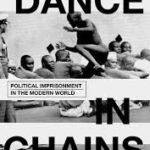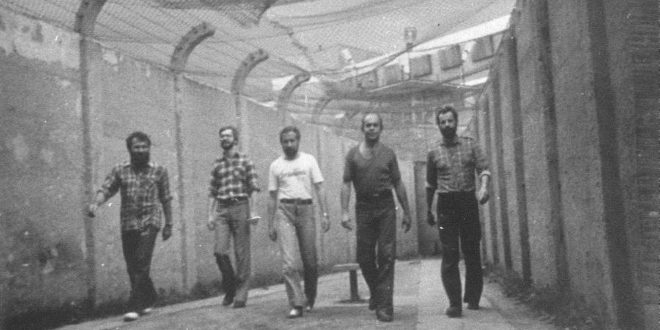Podcast: Play in new window | Download (Duration: 59:27 — 40.8MB)
 “You have done nothing wrong — though to be honest perhaps that’s a matter of perspective. You marched in a demonstration, or you attended a meeting, or you wrote an essay that appeared in an underground journal, or you merely possessed a copy of that journal. Or maybe you really did break the law. You planted a bomb, carried a weapon, plotted an assassination, managed secret funds, advocated revolution–but you know this was in the service of a just cause, a struggle so that others could live more freely and have the rights they deserve. Perhaps you were just a sympathetic bystander, or perhaps an officeholder who became a victim of regime change. Regardless, what you did or did not do had political meaning and a higher purpose. Surely that puts your deeds, your words, and your allegiances in a different light. One thing is for sure: you aren’t a criminal…And yet you are fingerprinted, examined, interrogated and stripped by armed officers. Perhaps you are beaten, tortured, bound. You have lost mastery of your life…you do not control your fate….On the other hand, you can’t be surprised…Objectively, you could say that the state is acting in accordance with its established principles. These are the terms of political conflict. And you are a political prisoner.”
“You have done nothing wrong — though to be honest perhaps that’s a matter of perspective. You marched in a demonstration, or you attended a meeting, or you wrote an essay that appeared in an underground journal, or you merely possessed a copy of that journal. Or maybe you really did break the law. You planted a bomb, carried a weapon, plotted an assassination, managed secret funds, advocated revolution–but you know this was in the service of a just cause, a struggle so that others could live more freely and have the rights they deserve. Perhaps you were just a sympathetic bystander, or perhaps an officeholder who became a victim of regime change. Regardless, what you did or did not do had political meaning and a higher purpose. Surely that puts your deeds, your words, and your allegiances in a different light. One thing is for sure: you aren’t a criminal…And yet you are fingerprinted, examined, interrogated and stripped by armed officers. Perhaps you are beaten, tortured, bound. You have lost mastery of your life…you do not control your fate….On the other hand, you can’t be surprised…Objectively, you could say that the state is acting in accordance with its established principles. These are the terms of political conflict. And you are a political prisoner.”
This is how Padraic Kenney opens his new book, Dance in Chains, where he finally asks “is there any figure in the contemporary world who inspires greater respect than the political prisoner?” But surely the state intends the opposite effect–And the reason why most states have abandoned the practice, the US being one glaring exception. In his book, Kenney reveals the ways prisoners transform and make use of their incarceration in countering states’ efforts to control them.
Dance in Chains, traces the history of modern political imprisonment from its origins in the mid-nineteenth century and draws on examples from regimes ranging from communist and fascist to colonial and democratic, including Ireland, the United Kingdom, Poland, and South Africa. While considering the international movements that have sought to publicize the plight of political prisoners, Kenney examines the actions of the prisoners themselves to find universal answers to questions about the meaning and purpose of their imprisonment.
 GUEST
GUEST
Padraic Kenney is Professor of History and International Studies at Indiana University. He is the author of The Burdens of Freedom: Eastern Europe since 1989, A Carnival of Revolution: Central Europe, 1989, and Rebuilding Poland: Workers and Communists, 1945-1950. He has served as president of the Association for Slavic, East European, and Eurasian Studies.
RELATED
In search of political prisoners: A dialogue with Padraic Kenney
Music of survival in Mandela’s prison (Al Jazeera)
Freedom songs: Chile’s sounds of resistance ring out again (The Guardian)
The State of Terror: Guantanamo Diary (Interchange)
MUSIC
“Death Before Revenge” by Pangur Ban
“Black Bread and Black Coffee” by Strachy Na Lachy
“Kure Kure Kwa Ndinobva” by The Robben Island Singers
“Bonny Mary of Argyle” performed by John McCormack
“Employment” by Thee Faction
CREDITS
Producer & Host: Doug Storm
Assistant Producer: Rob Schoon
Studio Engineer: Bryce Martin
Executive Producer: Wes Martin
 WFHB Bloomington Community Radio
WFHB Bloomington Community Radio


